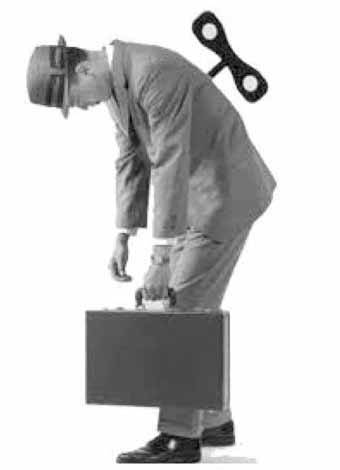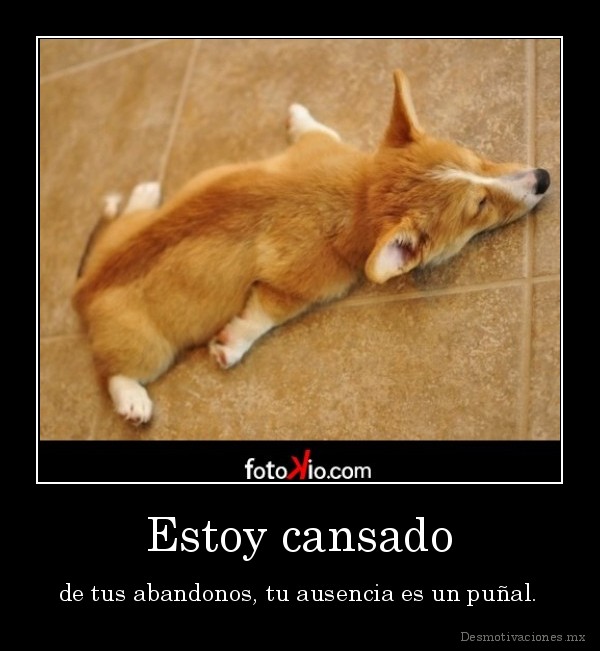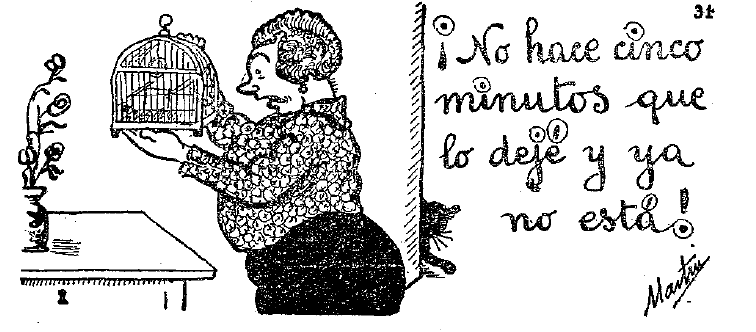
| Языки :: Испанский |
| Аудио |

 |
|
 |
|
89 |
Español |
Spanish |
|
Lección Treinta y una (31) |
||
| Estoy cansado | I am tired. | |
| 1 |
Por fin estoy en Madrid, el paraíso de doña Amelia,
e instalado en la pensión del anuncio. |
At last I am in Madrid, the paradise of doña Amelia and settled in the boarding-house of the ad. |
| 2 |
Instalado es mucho decir, pues no se todavía si me quedaré en ella (1). |
Settled is much to say, for I don't yet know if I shall stay there. |
| 3 |
Llevo sólo mis maletas. Anoche, al llegar a la estación del Norte, |
I have with me only my suitcases. Yesterday evening, on arriving at the North Station, |
| 4 | nos molestaron de tal manera los mozos de hoteles y pensiones (2), | the hotel and boarding-house men bothered us in such a way, |
| 5 | voceando todos a la vez e intentando quitarnos las maletas de las manos (3), |
shouting all at once and trying to take our suitcases from our hands, |
| 6 | que yo dejé mi baúl en la consigna, para escapar más pronto. | that I left my trunk in the cloak-room, to escape faster. |
| 7 |
En el taxi, doña Amelia no cesó de señalarme las calles y los monumentos; |
In the taxi, doña Amelia did not stop pointing out, to me the streets and monuments; |
| 8 | pero yo no presté mucha atención a sus palabras. | But I did not pay [lend] much attention to her words. |
| 9 |
Estaba cansado del viaje (veinticuatro horas de ferrocarril
desde Paris), y además tenia un hambre canina. |
I was tired with the journey (24 hours in the [of] train [railway] from Paris), and moreover I was hungry as a wolf [had a canine hunger]. |
| 10 | Habrá pensado la buena señora que la admiración me había quitado el habla (4). | The good lady will have thought that admiration had deprived me of speech. |
| EJERCICIOS | EXERCISE : | |
| 1 | ¡Diablo! ¿Quién me ha quitado otra vez el periódico? | Hell! [devil] who has again [another time] taken away my paper? |
| 2 | Lo había dejado aquí, sobre esta mesa. | I had left it here, on this table. |
| 3 | ¿Cuándo lo dejo usted? ¿Anoche? | When did you leave it? (yesterday) night? |
| 4 | ¡Pero mujer, qué habla usted de anoche! | But (my good) woman, what do you talk of (yesterday) night? |
| 5 | No hace cinco minutos que lo dejé ¡y ya no está! |
It's not [does not make] 5 minutes since [that] I left it, and it's not
there any longer [already]? |
| 6 | No hay que gritar por eso; quédese tranquilo, que se encontrará su periódico; |
(It's) no use crying out for that; keep quiet; [that] it will be found [find itself] again, (will) your [his (Honour 's)] paper! |
| 7 | no se ha perdido; en esta casa no se pierde nada. | It has not (got) lost; in this house nothing gets lost [loses itself]. |
| 8 | Entonces, haga el favor de indicarme donde está. | Then will you please tell me where it is. |
| NOTES. | |
| 1 |
I stay here : me quedo aquí.
|
| 2 |
El camarero : the servant who waits upon you at
table or in a cafe, waiter; |
| 3 |
La voz, las voces : the voice; voices. |
| 4 |
El habla : the faculty of speech (la facultad de
hablar). |
|
Again = another time is otra vez. |
